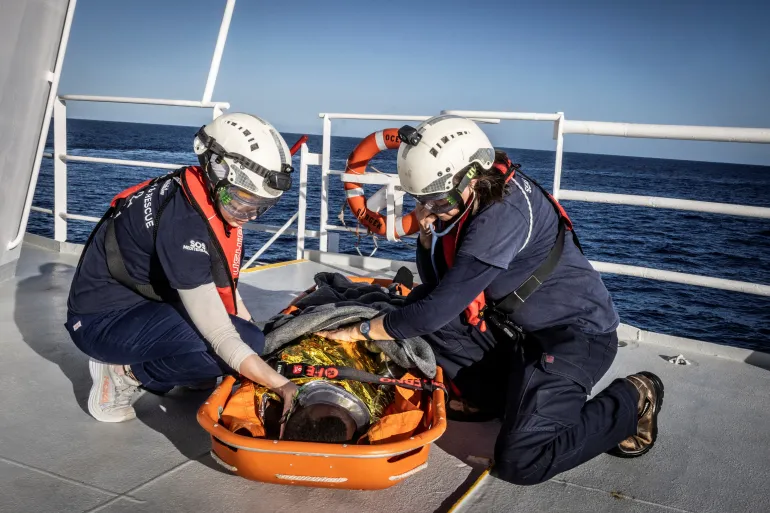Libyan Authorities expressed profound sorrow and regret as it confirmed the tragic discovery of a mass grave containing the remains of 65 immigrants in the Al-Shuwerf area, southwest of Gharyan. These individuals are believed to have perished while being smuggled across the desert.
The Libyan Authorities emphasized that the unearthing of this mass grave serves as a stark reminder of the heinous crimes committed against immigrants, refugees, and asylum seekers. These vulnerable groups have been subjected to various atrocities, including abduction, extortion for ransom, and trafficking by organized criminal syndicates due to the inadequacy of security measures.
This devastating incident underscores the immediate need to tackle the challenges and dangers associated with illegal migration. Authorities also highlights the imperative to combat the proliferation of human trafficking networks through a concerted effort to curb such criminal activities.
Authorities urged the General Officials for Search and Identification of Missing Persons to collect samples from the victims' remains, facilitate proper reburial procedures, and endeavor to identify the deceased individuals.
The European Union's practice of rescuing migrants at sea and subsequently returning them to Libya has raised significant ethical and humanitarian concerns. While the intention behind these actions may be to deter irregular migration and combat human trafficking, the consequences for the individuals involved can be dire. Libya is widely recognized as an unsafe and unstable environment, with reports of widespread human rights abuses, including arbitrary detention, torture, and exploitation of migrants.
By returning rescued migrants to Libya, the European Union risks exposing them to further harm and perpetuating a cycle of violence and exploitation. Refugees, migrants, and asylum seekers have the right to seek safety and protection in accordance with international law. Sending them back to a country where their safety and well-being are not guaranteed undermines these fundamental rights and places vulnerable individuals at grave risk.
It is essential for the European Union to uphold its obligations under international law and ensure that the rights of refugees and migrants are respected and protected. Instead of returning individuals to Libya, where they may face grave dangers, the EU should prioritize safe and legal pathways for migration, including robust asylum procedures and support for countries hosting large numbers of refugees.
By addressing the root causes of migration, improving humanitarian conditions in transit countries, and strengthening cooperation with international organizations and civil society, the European Union can uphold its commitment to human rights and ensure the safety and well-being of all individuals, including refugees, migrants, and asylum seekers.






(0) Comments
(0) Comments waiting moderation
To maintain a safer environment and keep our readers safe, all comments are held, manually reviewed before they are confirmed.